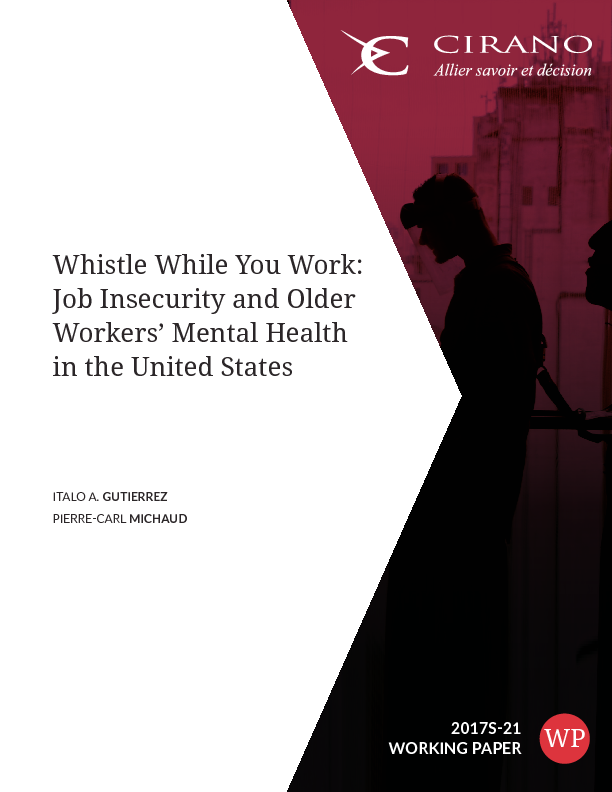Whistle While You Work: Job Insecurity and Older Workers’ Mental Health in the United States
We estimate the effects of job insecurity on older workers’ health outcomes using an instrumental variables approach which exploits downsizing and state-industry level changes in employment. We provide evidence that job insecurity, as measured by the self-reported probability of job loss, increases stress at work, the risk of clinical depression and lowers selfreported health status. IV estimates are much larger than OLS estimates which we interpret as evidence that job insecurity which is outside the control of workers may have much larger effects on mental health. These findings suggest that employers ought to consider actions to offset the detrimental health effects of reducing personnel on their remaining (older) workers and pay attention at the stress that industry level changes in economic conditions may have on workers.
[ - ]




